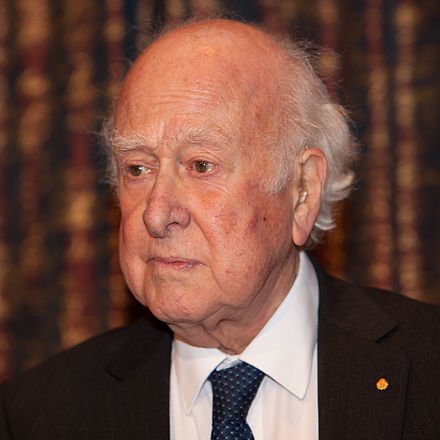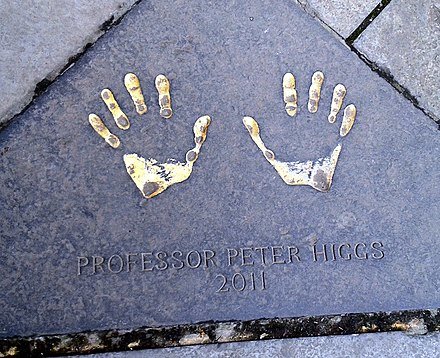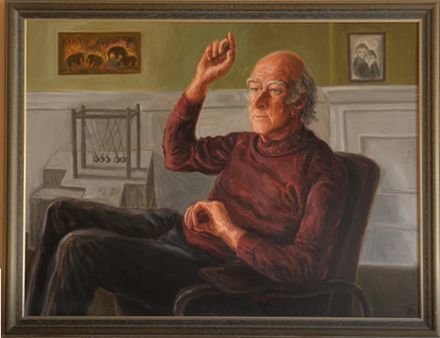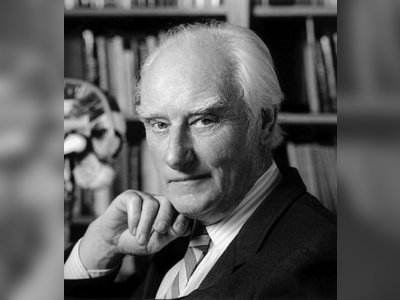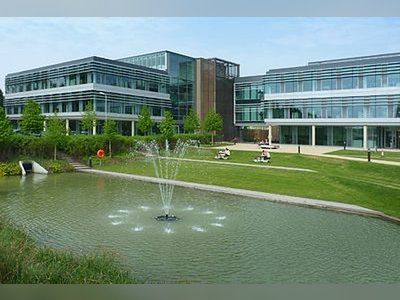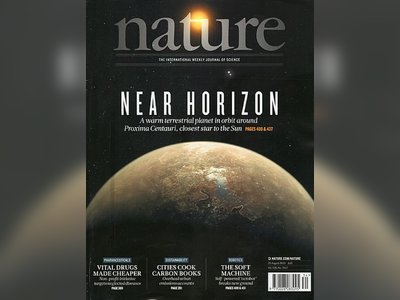British Heritage
Remember, Cherish, Learn.
beta
Peter Higgs - The Boson Nobel
A Defining Contribution to British Heritage.
Renowned for his work in theoretical physics, Peter Ware Higgs has solidified his legacy as a pivotal figure in the realm of British heritage. His revolutionary insights into the mass of subatomic particles, particularly the prediction and discovery of the Higgs boson, have enriched our understanding of the universe's underlying architecture. The significance of his contributions not only places him in the annals of British scientific history but also solidifies the UK's reputation as a crucible of groundbreaking scientific discovery.
Born on May 29, 1929, in Newcastle upon Tyne, England, Higgs grew to become a physicist of remarkable calibre. His father, a sound engineer for the BBC, and his mother, a dedicated homemaker, nurtured his early aptitude for mathematics and physics. Despite a bout of childhood asthma that disrupted his early schooling, Higgs demonstrated a profound dedication to his studies, leading him to King's College London where he completed his PhD in molecular vibrations.
Upon completing his doctorate, Higgs began his career at the University of Edinburgh. There, he dedicated his efforts to unravelling the mysteries of subatomic particles, focusing on their mass. His revolutionary insights led him to propose the Higgs mechanism, which predicted the existence of a new particle - the Higgs boson - that confers mass on other particles. This was a significant milestone in particle physics and solidified his reputation as a pre-eminent physicist.
Higgs' predictions from the 1960s materialized in 2012 when the Higgs boson was discovered at CERN’s Large Hadron Collider. This was a monumental moment in physics; a vindication of the Standard Model, the widely accepted theoretical framework for particle physics. The discovery prompted famed physicist Stephen Hawking to suggest that Higgs should receive the Nobel Prize for his work, which he did, sharing the honour with François Englert in 2013. This pinnacle of recognition underscored the enormous influence of Higgs' contributions to the world of physics and to British scientific heritage.
Higgs' pioneering work earned him a wide array of awards, including prestigious recognitions from the Royal Society, the Institute of Physics, and the European Physical Society. In 2015, he was awarded the Copley Medal, the world's oldest scientific prize, by the Royal Society.
Despite his esteemed status, Higgs remained humble and committed to his research. He was renowned for his dedication and modesty, qualities that earned him deep respect within and outside the scientific community.
Higgs married Jody Williamson, a fellow Campaign for Nuclear Disarmament (CND) activist, in 1963. Together they raised two sons and became grandparents. Outside his academic pursuits, Higgs actively campaigned for causes he believed in, such as nuclear disarmament and environmental conservation. Although he identified as an atheist, Higgs was critical of the term "God particle" for the Higgs boson, considering it a potential affront to those of religious faith.
Beyond his numerous accolades and contributions to science, Peter Higgs also made significant cultural contributions to British heritage. The Higgs Centre for Theoretical Physics at the University of Edinburgh, named in his honour, attracts global talents in the quest for a deeper understanding of how the universe works.
Moreover, Higgs' life and work continue to inspire generations of students, scientists, and academics across the globe. His steadfast commitment to scientific inquiry, coupled with his intellectual integrity, exemplifies the best aspects of British scientific heritage.
Through his tireless efforts and exceptional intellect, Peter Higgs transformed our understanding of the universe. His contributions to theoretical physics have not only furthered Britain's scientific legacy but have also played a significant role in shaping the global scientific landscape. As such, his life and work stand as a testament to Britain's tradition of academic excellence and scientific innovation.
A Life and Career Dedicated to the Frontiers of Physics
Born on May 29, 1929, in Newcastle upon Tyne, England, Higgs grew to become a physicist of remarkable calibre. His father, a sound engineer for the BBC, and his mother, a dedicated homemaker, nurtured his early aptitude for mathematics and physics. Despite a bout of childhood asthma that disrupted his early schooling, Higgs demonstrated a profound dedication to his studies, leading him to King's College London where he completed his PhD in molecular vibrations.
Upon completing his doctorate, Higgs began his career at the University of Edinburgh. There, he dedicated his efforts to unravelling the mysteries of subatomic particles, focusing on their mass. His revolutionary insights led him to propose the Higgs mechanism, which predicted the existence of a new particle - the Higgs boson - that confers mass on other particles. This was a significant milestone in particle physics and solidified his reputation as a pre-eminent physicist.
The Discovery of the Higgs Boson and Its Impact
Higgs' predictions from the 1960s materialized in 2012 when the Higgs boson was discovered at CERN’s Large Hadron Collider. This was a monumental moment in physics; a vindication of the Standard Model, the widely accepted theoretical framework for particle physics. The discovery prompted famed physicist Stephen Hawking to suggest that Higgs should receive the Nobel Prize for his work, which he did, sharing the honour with François Englert in 2013. This pinnacle of recognition underscored the enormous influence of Higgs' contributions to the world of physics and to British scientific heritage.
An Extensive Array of Honours and Awards
Higgs' pioneering work earned him a wide array of awards, including prestigious recognitions from the Royal Society, the Institute of Physics, and the European Physical Society. In 2015, he was awarded the Copley Medal, the world's oldest scientific prize, by the Royal Society.
Despite his esteemed status, Higgs remained humble and committed to his research. He was renowned for his dedication and modesty, qualities that earned him deep respect within and outside the scientific community.
Personal Life and Views
Higgs married Jody Williamson, a fellow Campaign for Nuclear Disarmament (CND) activist, in 1963. Together they raised two sons and became grandparents. Outside his academic pursuits, Higgs actively campaigned for causes he believed in, such as nuclear disarmament and environmental conservation. Although he identified as an atheist, Higgs was critical of the term "God particle" for the Higgs boson, considering it a potential affront to those of religious faith.
A Legacy That Transcends Borders
Beyond his numerous accolades and contributions to science, Peter Higgs also made significant cultural contributions to British heritage. The Higgs Centre for Theoretical Physics at the University of Edinburgh, named in his honour, attracts global talents in the quest for a deeper understanding of how the universe works.
Moreover, Higgs' life and work continue to inspire generations of students, scientists, and academics across the globe. His steadfast commitment to scientific inquiry, coupled with his intellectual integrity, exemplifies the best aspects of British scientific heritage.
Through his tireless efforts and exceptional intellect, Peter Higgs transformed our understanding of the universe. His contributions to theoretical physics have not only furthered Britain's scientific legacy but have also played a significant role in shaping the global scientific landscape. As such, his life and work stand as a testament to Britain's tradition of academic excellence and scientific innovation.
- Peter Higgsen.wikipedia.org
